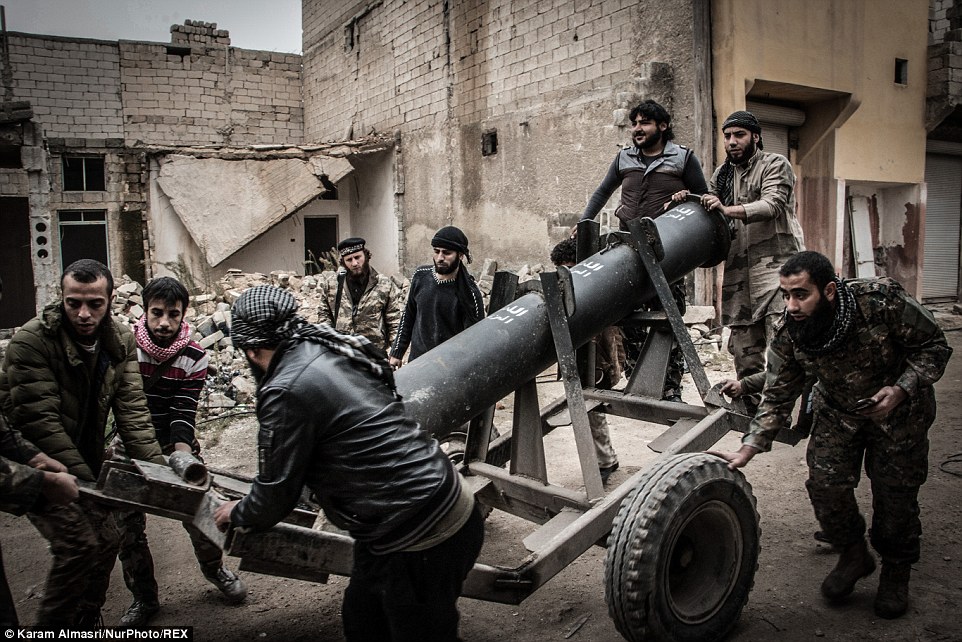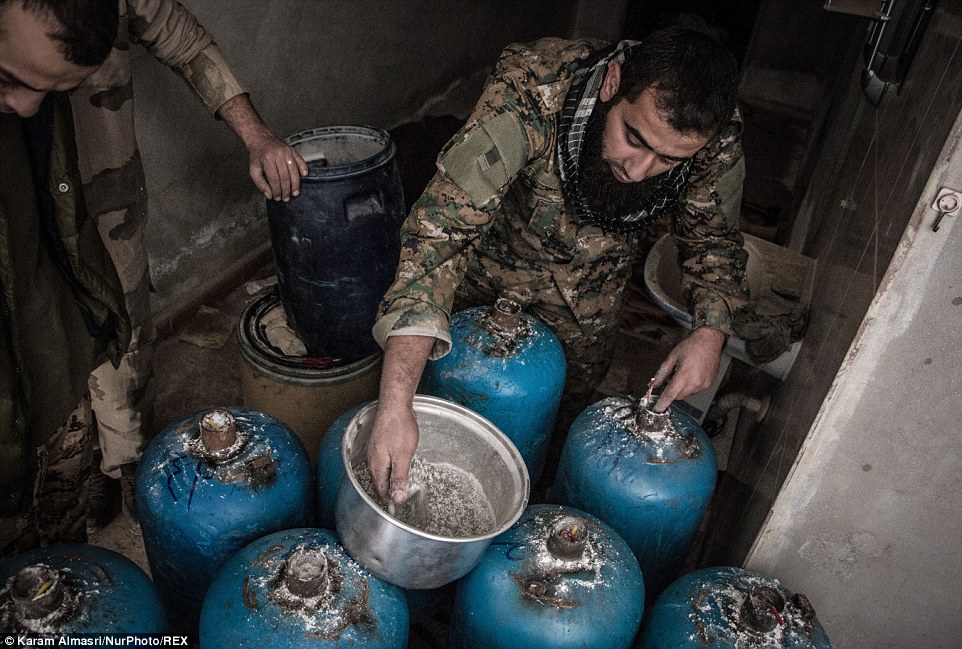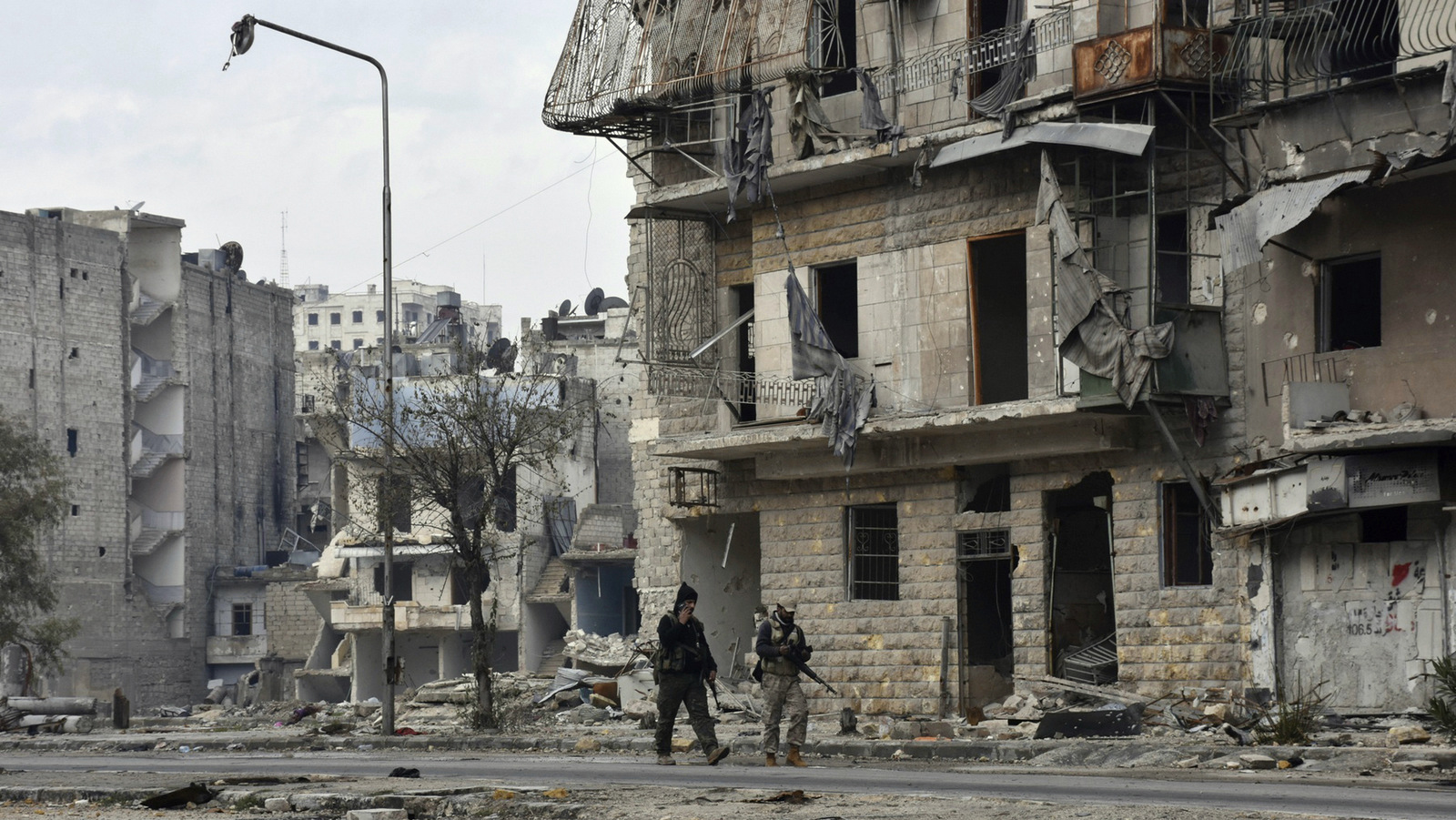
ALEPPO– The U.S./NATO-imposed war and invasion of Syria has been going on for over six years now. Each day, it claims the lives of many innocent people. But until we speak to these individuals and hear their stories, they seem like little more than a statistic. It is important to keep in mind that these people deserve to be acknowledged as fellow human beings. When we tell their stories, we can relate to them that much more easily.
Syrians have families, just like the rest of us – except many of these families have been torn apart due to their misfortune of living in a war zone. Syrians have seen their loved ones take their last breaths right before their eyes, all because of a war that has crept into their country like a thief in the night.
It is still quite hard for most Syrians to accept this reality. Seeing their country destroyed daily by Western-backed foreign mercenaries is a very difficult thing. That they have been able to maintain a great deal of faith and hope speaks volumes about their resilience.
NATO’s dirty war on Syria consists of a wide variety of terroristic tactics, including economic sanctions, illegal bombing campaigns and the insertion of about 360,000 foreign terrorists into the country. But in Aleppo, Syrian opposition forces are particularly known for using improvised artillery known as “hell cannons.” This term is used to describe a variety of mortar-like firearms that have been in use in Aleppo and elsewhere since 2013.
The cannons come in many shapes and sizes, but generally consist of a muzzle-loaded barrel that is used to fire repurposed gas canisters that are filled with explosives and shrapnel. The cannons are capable of inflicting significant amounts of damage, but are wildly inaccurate, with many of their projectiles landing in civilian areas.
Abed Hajjo is familiar with the carnage that such weapons can inflict. On Dec. 5, 2014, his wife and daughter were killed in an attack in which hell cannons were used to bombard a civilian area. Abed and his son Jameel now live in Germany, where they fled to escape the harrowing conflict that still grips their hometown. Today, we’ll speak to Abed about the attack and the effect that the war has had on his family.
MintPress News (MPN): Can you tell me about the attack?
Abed Hajjo (AH): It has forever changed our lives for the worse. Kamilia, my wife, was 36 years old when she was martyred. Julie, my daughter, was six years old. My son Jameel is with me in Germany – we ran away from the war, as I was afraid for him and didn’t want to lose him.
On Dec. 5, 2014, Kamilia went to her parents’ house along with our two children. [Their house] is located on Nile Street, close to [the air force]. I heard takbir (religious chants that are shouted by extremists after carrying out an attack) coming from an area called Al Layramon, which is under the control of the Uzbekistani Islamist faction.
When I heard the first explosion, I called my wife’s parents to see what had happened. My wife answered and said that the building across from her had been hit. I told her to stay inside – after a short time, I heard another explosion from a hell cannon that had gone off. I called her again, but no one answered. I went out on our balcony and saw people near the side of the building that her parents’ home was in.
At that moment, I was overcome with an indescribable feeling. I called again and no one answered. I ran out of the house like a crazy person in my pajamas. I went into their home and saw dust and destruction. When I saw my mother-in-law, she said Julie had been killed. Who killed her? I ran outside and saw a car, I begged the driver to take me to the closest hospital. He took me to the emergency room of a university hospital – I saw Julie lying dead. She had a wound in her neck from the shrapnel.

I went to look for my wife and my son, who had suffered minor cuts. My wife was awake – she asked me, where is Julie? I told her that she was there – but when she asked me if [Julie] was okay, I didn’t respond. When my wife asked me where Jameel was, I said that he was inside and that he was fine. My wife asked me again where Julie was, and I told her she was fine – she asked me to swear that she was. The nurse then came in and said Julie was resting, which made my wife feel relieved.
But then she said she couldn’t feel her legs – her legs had been severely injured and she started screaming from the pain. She didn’t realize she was in pain until after she’d asked about our children. The doctors decided to try and amputate her legs, but she died during the operation.
I buried my daughter and wife within two hours of each other, buried them next to each other. They haven’t left my mind and I’m always thinking about them and remembering them. I am now dedicating my life to my son and raising him like his mother would have wanted.

MPN: Do you know any of the other details of the attack, such as who made the hell cannons that were used and how they were targeted?
AH: The hell cannons are handmade by terrorists. In this case, they were made by the Uzbekistani Islamist army. They use gas containers that they fill with explosives. They are indiscriminate and don’t necessarily choose specific targets, they just launch them and yell “allahu akbar!”

They want people to flee the area or even the country. They want to put fear in their hearts, uncertainty, a feeling of not knowing when you will be attacked. They can’t win against the Syrian Arab Army, so they take out their revenge on innocent civilians. They are brainwashed into thinking they are performing jihad and will go to heaven. We are nothing more than just a number in reaching their goals.
MPN: How was life in Aleppo before the war? How was it different after the war started?

AH: Aleppo was heaven, we were living well and accustomed to life. Each person lived according to what he could financially afford. No one went to bed hungry. Life in Syria was great, we didn’t really have any complaints. There was religious tolerance and people got along well. It was a safe country and nothing like what you have heard. People supported the Syrian government. I was a senior customer service officer at MTN Syria (a major Syrian telecoms company). My wife didn’t work, she was a stay-at-home mom, her whole focus was on our kids and tending to our home.
After the war, [many] Syrians became lost. They were displaced. Some started acting as self-proclaimed sheikhs (in this context, he meant they became extremists). People were acting like judge and jury and making religious decisions as they pleased. There were some that were Syrian, but the people that were leading this initiative were not Syrian. Their ideologies and thoughts originated from Saudi Arabia.
Killing became an easy thing for them to do. They brainwashed people and coated things with “religious paint” to make people accept it. This made things very dangerous. Idlib is a perfect example. Everyone is acting like a prince in this fake and wicked revolution.
These people are happy because they are getting paid by the Khaleeg (Gulf) and they are being flown to forums and meetings. They want things to remain this way for unspeakable reasons – the killings, beheadings and kidnappings. This all happened after this manufactured war in Syria, none of this existed prior to this foreign insurrection, imposed war and invasion. The head of the snake is Saudi Arabia, Turkey, Qatar and the Muslim Brotherhood.
MPN: Did you see changes happening slowly or was this a sudden development?
AH: Things in Aleppo changed overnight, but then areas that were liberated by the Syrian Arab Army returned to normal fairly quickly. Aleppo didn’t rise against the Syrian government. The ones that started this are in the villages outside of Aleppo. People in Aleppo just wanted to work their jobs and keep their factories functioning.
When [the terrorists] first started, they burned the Justice Palace and courthouse in Dara’a, why did they do that if they don’t care for the Syrian government? What do the courts have to do with anything? [Syrian] President Bashar al-Assad said you have Libya as a prime example, look what they did to Gaddafi and how they turned the country upside-down. They invaded [other countries], ousted the leaders and destroyed these countries. Lots of creative chaos in order to create a new Middle East, this was their plan.
MPN: Can you tell me more about your daughter and wife?
AH: Julie used to love to watch Cartoon Network and spoke English very well. She loved me so much, she would pick out my clothes for me. She would stay up with me Thursday nights because Friday and Saturday are our days off from work in Syria. I used to spoil her a lot. She would call me while at work and even when I was incredibly busy, I’d still pick up the phone.
Kamilia studied women’s arts and stayed home with the kids, she didn’t work. Her main focus in life was her kids and myself. She loved and cared for us dearly. Things are so different now – to be perfectly honest, I find it hard to take care of everything on my own. Taking care of my son, working, studying, taking care of the house – but I do it all and will continue to do everything I can to make Kamilia proud.
MPN: What do you think it will take to end this war?
AH: People need to be educated on what is really taking place. Knowledge is the weapon of our time, it is more dangerous than regular weapons. People are being brainwashed by the Salafi, Wahhabi and Takfiri ideologies that are coming from Saudi Arabia. Saudi Arabia needs to completely take its hands off of Syria, it is brainwashing the local people with its extremist ideologies and providing funding and weapons to terrorists.
Turkey needs to close its borders so that terrorists cannot come into Syria. All of the armed foreign mercenaries need to be taken out of Syria. That is the only way to get things back to normal. The Syrian Arab Army, along with their allies, need to finish off Daesh (ISIS), al-Qaeda and all of the armed opposition groups that fall under them.
But winning the war isn’t just about military advances, it is about psychological, ideological and emotional advances too. When people understand that they were wrong, that they were being used by the West to further their agenda, that they were not fighting for the right reasons. The West has specific goals that they are trying to further in the country – they are trying to create this chaos for their own benefit like they have done with other countries.
The U.S. and NATO are supported by a well-funded media campaign fueled by fabricated stories and propaganda. This media campaign has fooled the general public in the West into believing this has been an internal issue or a “revolution,” but that is not true. Every day we have new martyrs and more people are being killed. I want to return to Syria one day when the war ends with my son because this is my land. This is my home. Our soil is not cheap and not available for sale to the West.
When will normalcy return to Syria?
Hearing stories like those of Abed Hajjo is incredibly difficult, but also crucial in order to understand just how devastating this war has been for the average Syrian household. The West has made the conflict seem like an Islamic war being waged against the rest of the world, but there is a great deal of evidence pointing to the fact that Western-supported terrorists in Syria are anti-Islamic. The “Islamic State” terrorists are literally anti-Islamic terrorists. They are mercenaries who serve the West’s interests by destroying foreign countries. None of the terror groups that have been singled out, including al-Qaeda, the Free Syrian Army (FSA), are Islamic, although they may claim otherwise.

The Wahhabism of Saudi Arabia is a weaponized political ideology, far removed from the genuine teachings of Islam. Islamophobia, a product of Western engineering, is based upon lies and distortions. Imperialists cultivate these lies to further their own criminal agendas. As we have seen with the Hajjo family, people’s lives have been destroyed because of these lies.
Testimony from Syrians is all but ignored by the mainstream media, which has focused on delivering a one-sided view of this war. It is imperative that stories such as those of the Hajjo family are brought to the surface and shared in order to raise awareness of what is at stake in Syria. Until we can clearly identify the enemy, they cannot be defeated.
Sarah Abed is an Independent Political Commentator and Journalist that contributes to Mint Press News and other news publications. She also contributes to radio shows and University forums and specializes in Middle Eastern affairs. Her articles can be seen at The Rabbit Hole.

